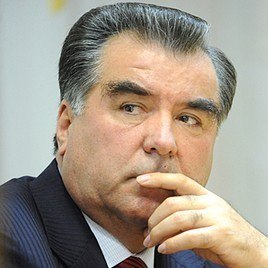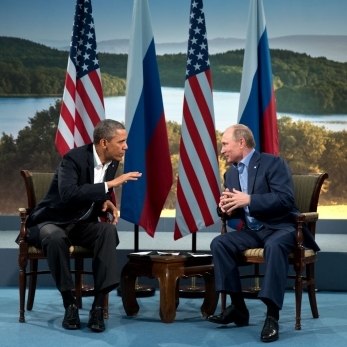(The Monkey Cage) Earlier today the White House announced that President Obama would cancel his planned September summit with Russian President Vladimir Putin. Here are some thoughts on this decision from my colleagues at PONARS Eurasia:
Kimberly Marten, Barnard College, Columbia University:
Obama did exactly the right thing: a symbolic personal rebuff for a symbolic personal rebuff. Obama had made it clear that the Snowden case was his line in the sand, and Putin crossed that line unnecessarily. Putin could have chosen instead to give the Snowden request the 3-month administrative consideration period that the Kremlin originally mentioned when he originally made his asylum application, rather than granting Snowden the yearlong temporary asylum straight off. It looks like the meeting in Washington tomorrow between Secretary of State Kerry and Secretary of Defense Hagel and their Russian counterparts is still on, and that is the truly substantive part of the diplomatic interaction anyway. Assuming that the Russian side doesn’t cancel their participation in that meeting, then there has been no real change in the quality of the relationship.
Andrey Makarychev, Public Service Academy (Nizhny Novgorod, Russia) and Free University of Berlin:
The cancellation of the Russia – US summit is a strong indication of the growing international isolation of the Kremlin. It is quite predictable that the G20 summit in St.Petersburg may turn into an event devoid of substance and therefore a diplomatic / PR failure for Moscow. Also expectable is that Putin won’t be able to win the already launched information war against the Sochi Olympics. The key question is how soon Putin will understand that he overrated his resources.
Cory Welt, George Washington University:
The decision to cancel the bilateral summit was unfortunate but expected. It does leave one wondering about the decision to schedule the summit in the first place. The official explanation for the cancellation focused less on Russia’s decision to grant Snowden asylum than the fact that there has not been “enough recent progress in our bilateral agenda” to justify a summit. That is obviously true – but it was also true when the administration announced the summit to begin with. In the end, we’re back to the point we should have been – lower-profile efforts to move forward on a multi-pronged agenda without the high expectations that a summit would bring.
—
This post originally appeared on the The Monkey Cage. Joshua Tucker is a New York University political scientist and PONARS Eurasia member.










